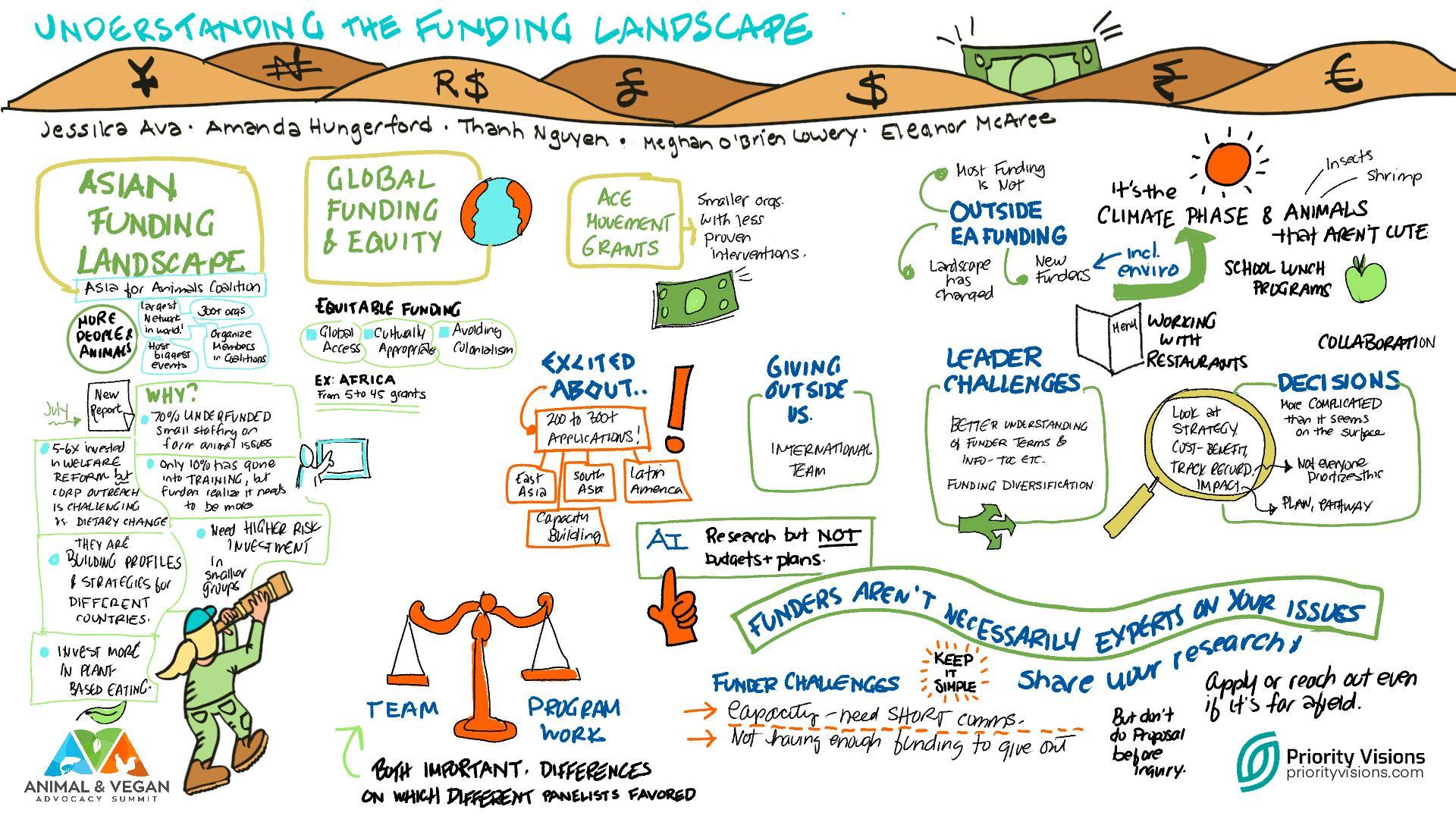This is a thread for a continued dialogue that began during the AVA Summit DC in Washington, DC, from May 16-19, 2024.
The session "Understanding the Funding Landscape," explored funding challenges and opportunities in animal and vegan advocacy. The discussion highlighted the Asian funding landscape and global funding equity, emphasizing the need for equitable funding that is globally accessible, culturally appropriate, and avoids colonialism. The Asian context, represented by the Asia for Animals Coalition, faced issues such as being significantly underfunded and lacking skilled staff for outreach and dietary change initiatives.
A significant portion of the conversation revolved around the excitement for ACE Movement Grants and giving outside traditional EA funding channels. The speakers discussed the challenges faced by leaders in understanding funder terms, the need for funding diversification, and better strategic planning. They also pointed out that funders aren't always experts in the issues they support, underlining the importance of sharing research and keeping communication clear and concise.
Key insights included the need for higher-risk investments in smaller groups, increased investment in plant-based eating, and the importance of collaboration, particularly in school lunch programs and working with restaurants. The session stressed the complexity of funding decisions, advocating for a balanced approach between team and program work and encouraging reaching out for funding opportunities even if they seem unlikely. Overall, the session provided a comprehensive overview of the funding landscape, highlighting the importance of strategic planning, equitable funding, and effective communication in advancing animal and vegan advocacy.
Speakers:
· Eleanor McAree, Movement Grants Manager, Animal Charity Evaluators
· Meghan O’Brien Lowery, Greenbaum
· Jessika Ava, CEO, Thrive Philanthropy
· Amanda Hungerford, Farm Animal Program Officer, Open Philanthropy
· Thanh Nguyen, Farm Animal Coalition Coordinator, Asia for Animals Coalition
Talented visual artist and infographic creator Caryn Ginsberg of Priority Visions carefully visualized this session from start to finish, highlighting key points and takeaways.

Let's continue the dialogue below to allow for a fully comprehensive overview of the funding landscape.





